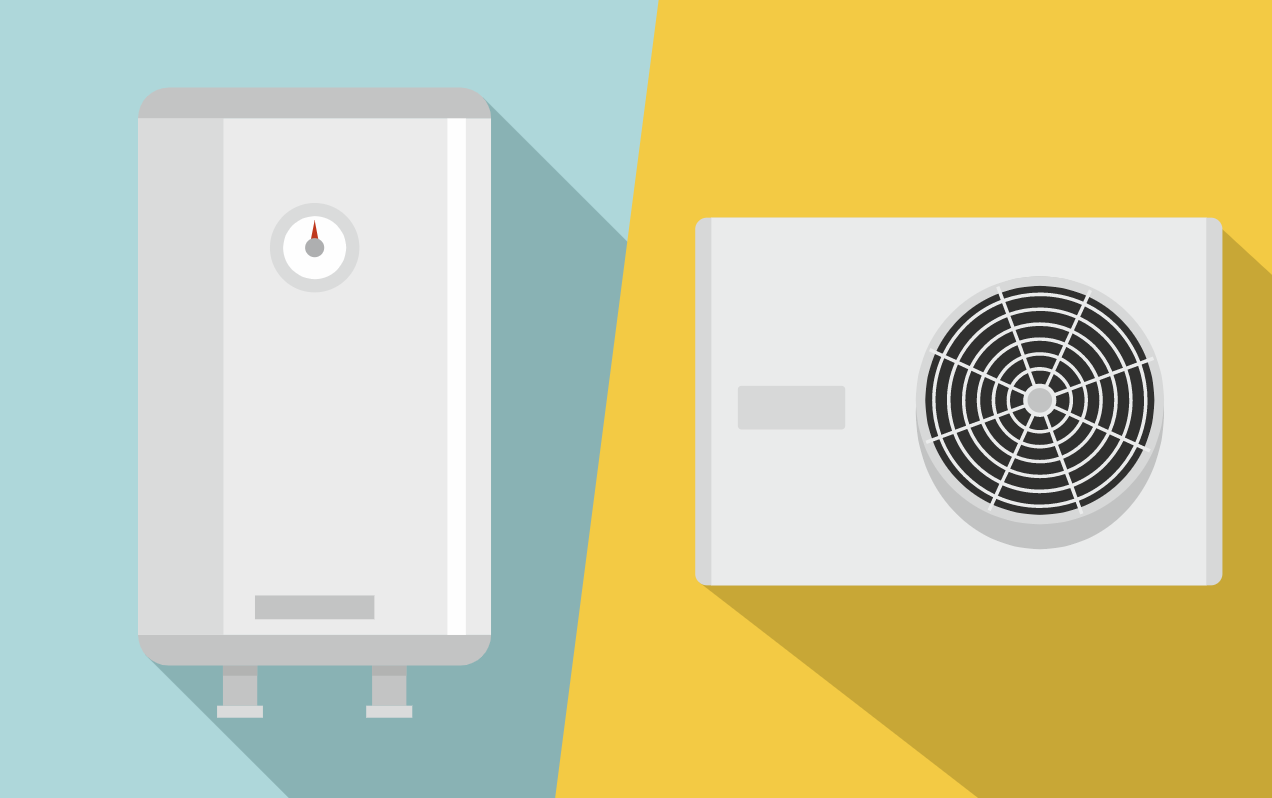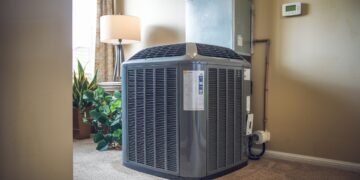The global movement toward greater sustainability has left many homeowners wondering which is the best sustainable heating system to install. While eco-friendly heating alternatives are undoubtedly safer for the environment, they are a significant investment, and choosing the right one is essential!
Heat pumps are a popular choice, boasting incredible efficiency ratings and eco-friendly benefits that can certainly reduce your household’s carbon footprint. However, they are not the only option out there. Biomass boilers are also highly efficient systems that can lower your environmental impact.
So, what is the difference between biomass boilers and heat pumps, and which one is right for you? Continue reading our informative guide to make the best decision for your home!
What Is A Biomass Boiler?
A biomass boiler functions similarly to gas and oil boilers, burning fuel to generate heat. The primary difference is the type of fuel they burn. Rather than burning non-renewable fuels such as gas and oil, biomass boilers typically run on wood in the form of logs, chips, or pellets.
Since biomass boilers use wood as fuel, they are a carbon-neutral system, producing the same amount of carbon dioxide during combustion that a tree would later re-absorb. This vastly differs from gas and oil boilers, which produce many harmful carbon emissions during combustion.
Modern biomass boiler systems will work automatically, sending wooden chips and pellets into the combustion chamber from the storage compartment. Once in the combustion chamber, the wood will burn and heat water through a heat exchanger. The hot water will run through your pipes to provide central heating and hot water for your taps.
When installing a biomass boiler, you must ensure you have enough fuel. Depending on the type of boiler you install, you will need to top up the fuel by hand or through a hopper that automatically dispenses fuel into the system. You will also need to clear the boiler of ash occasionally, although how often you do this will depend on the type of boiler you install.
There are several different kinds of biomass boilers to choose from. If you are looking to invest in a sustainable heating alternative, ensure to do your research to find the best biomass boiler for your home.
What Is A Heat Pump?
Heat pumps are the rising star in sustainable heating technology, eliminating the combustion process altogether. Heat pump systems work by transferring heat from the soil or air into the home. While they run off electricity and are not a complete zero-carbon solution, heat pumps are significantly better for the environment than gas and oil boilers.
Since heat pumps heat your home via heat transfer rather than combustion, they are highly efficient and generate more energy than they use. Although you can experience incredible long-term savings on your energy bills, heat pumps require a large upfront investment to buy and install.
The installation process can also be complex and destructive depending on the type of heat pump you buy. For example, ground-source heat pumps require complex pipework to be dug underground outside your home. Nevertheless, these systems are a smart long-term investment.
You can even become entirely carbon-free when pairing these systems with solar energy!
Biomass Boiler Vs Heat Pump Comparison – Which One Is Right For You?
Now that you know more about both systems, you are left with a tricky decision. The best choice when deciding between heat pumps and biomass boilers will largely depend on your situation and personal preferences.
Read through our biomass boiler and heat pump comparison to help make the decision a little easier.
System Efficiency
In terms of efficiency, you can’t do much better than a heat pump. These innovative systems boast efficiency ratings of over 300%, a clear winner compared to modern biomass boilers, which have efficiencies of around 90%.
Biomass boilers have similar efficiency ratings to that of a gas or oil boiler, so you won’t be sacrificing the efficiency of your boiler if you decide to make the switch.
System Lifespan
The lifespan of your system is an important consideration in terms of cost-effectiveness. Understanding how long your heating system will last before needing to be replaced can help you decide whether it is a worthy investment and whether you can break even with its initial costs in the long run.
While how long your boiler or heat pump lasts can depend on various factors, they each have their own average lifespan. Biomass boilers have an average lifespan of around 8-12 years with regular maintenance, while heat pumps can last anywhere between 15-25 years.
System Maintenance
Biomass boilers require annual maintenance to ensure they run efficiently and are in working order. Regular maintenance can also lengthen the lifespan of your boiler, so you won’t need to replace it for many years.
Heat pumps don’t require annual service, but it is a good idea to have them looked at by a professional to ensure the system works optimally and eliminate the risk of breakdowns and unexpected repairs.
Environmental Impact
Heat pumps are an excellent low-carbon alternative to traditional heating systems, helping you reduce your carbon footprint. When pairing your heat pump with a renewable source of electricity, such as solar energy, it will produce zero carbon emissions when heating your home!
Biomass boilers can also help to lower your household’s environmental impact as they are a carbon-neutral system.
Cost
For many, the ultimate deciding factor is the price. While heat pumps are a remarkable feat in technology, they also come with a hefty price tag. Air-source heat pumps are the most affordable option, with prices ranging from $3,500- $7,000 to buy and install. Ground-source heat pumps are more complex to install and can set you back anywhere between $13,000- $36,000.
Biomass boilers have a similar price range depending on the type of boiler you install (manual or automatic, for example). When installing a biomass boiler, prices range from around $4,600 to $26,000.
These prices may seem steep when compared to gas boilers, which you can install for around $2,000. However, biomass boilers offer lower running costs and help you save on energy bills in the long run.
Conclusion – Which Is the Better Option?
The right choice ultimately depends on your specific needs and requirements. Heat pumps are efficient and effective but complex to install. Biomass boilers might be the most effective solution if you already have a boiler system inside your home.
However, if your budget allows for the high upfront costs and installation fees, heat pumps have plenty of money-saving benefits that make them a worthy investment! Consider your home requirements and budget to make the best decisions for your home.
Recommended Posts:
















